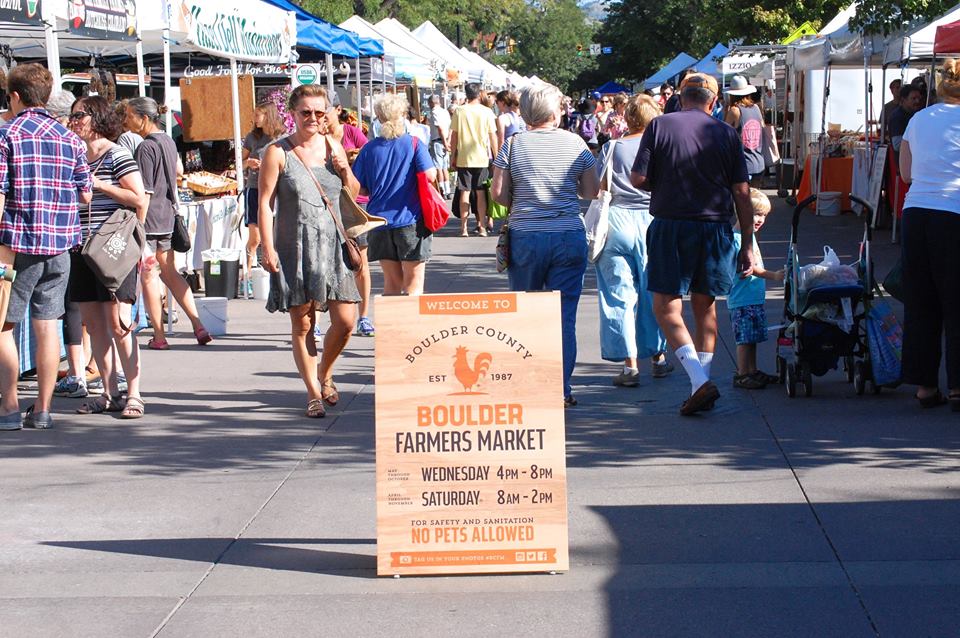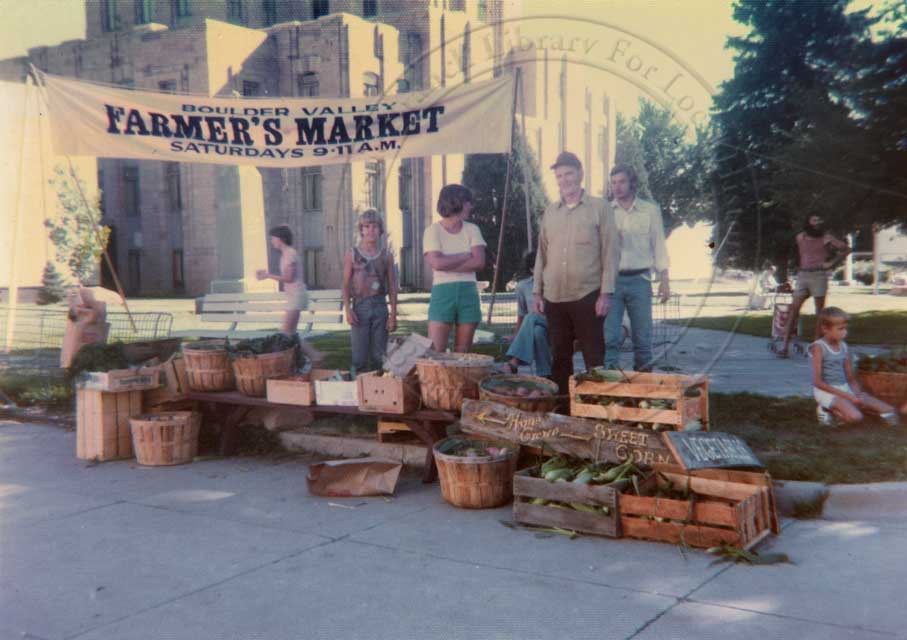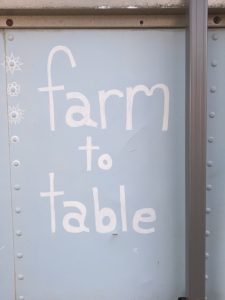This post was written by FIG’s owner and Chief Fresh Officer, Sylvia R. Tawse. Sylvia and her husband Lyle Davis own and operate Pastures of Plenty, a 35-acre organic vegetable, herb and cut flower farm in Boulder County, CO, complete with a thriving CSA and true farm-to-table catering. As both a farmer and a PR professional, Sylvia has decades of experience in food & agriculture and a deep history with the organic industry. ‘Faux Farmers Markets’ explores the lack of regulation in farmers markets both in Colorado and across the nation and calls for implementation of higher standards of credibility, just one example of FIG’s ongoing fight to establish authenticity in agriculture, and support positive change in the food industry.
Lyle and I are ‘ripe’ enough in years to have witnessed the arc of food terms from little known, to popularly embraced, to bastardized. Take the word ‘sustainable,’ for example. Four years ago when I heard an NPR sponsor message broadcast, ‘Monsanto, the sustainable company,’ I knew it was over for the integrity of that term. Like the word ‘natural,’ it was a breathy label left vapid from overuse.
Lyle and I both worked for years on defining the term ‘organic’ as it relates to agriculture and food. We served on the Colorado Organic Producers Association in the early nineties before the term ‘organic’ was federally regulated in 2002. Back then, we were not farmers but retail grocers working on the other end of the food chain than where we now live and labor. The rest of the COPA board was comprised of some of the state’s most legendary pioneers in organic farming: Ernie New, potato and quinoa grower from the San Luis Valley, Andy Grant of Owl Canyon/Grant Family Farms north of Fort Collins, John MacKenzie, local bean and mixed vegetable grower, and Thomas Cameron of Durazno Orchards on the Western Slope, to name a few. We’d often meet in Breckenridge to find a central locale to our state’s top agricultural havens. Each of us worked countless volunteer hours to draft Colorado’s official regulations for organic. We landed as the second state in the country to codify formal organic regulations, right after California. Imagine being a businessperson and pleading with your state government to please, please regulate your work, and on top of that, inspect your headquarters annually, at a minimum? That is what we did . . . on purpose.
Why? To secure consumer trust. We knew the only way consumers and shoppers would trust the term ‘organic’ would be if a credible and enforced set of regulations was the ‘teeth’ behind the label.
Flashback to the early days of Boulder County Farmers Market.
Fast forward to today, and we see the term ‘farmers markets’ loosely used and abused throughout the country. Sprouts Farmers Markets? I don’t think so. Ask any one of their employees to name the farmers who grow their food. They can’t tell you. It’s because it all arrives on a truck and they, as a retailer, are using the term as it is now trendy and fashionable. Some would call this greenwashing. I just call it ‘faux.’
More specifically, we live and shop in a time when ‘faux’ farmers markets happen at what many think are real farmers markets. If you’re shopping a Colorado ‘farmers market’ and you see tables selling mangoes, pineapples and heaps of ripe tomatoes in early July, you’re not at an authentic farmers market. You’re shopping an outdoor wholesalers market.
‘We grow what we sell’ has been the mantra for Boulder County Farmers Market for the past 27 years. It is also our own farm’s philosophy. Last weekend we experienced several shoppers who were shocked when we explained that 100% of what we sold, including the flowers, was grown on our farm. They were sure we had imported the flowers. I smiled and said, “We only sell what we grow – and all of this grows just 45 minutes away in Boulder County.” “Really? I just thought you couldn’t grow flowers like these in Colorado. Amazing,” said the gob smacked shopper, with a California watermelon cradled in her arm.
A summer bouquet of flowers 100% grown at Pastures of Plenty.
In fact, most of the ‘farmers markets’ (quotes on purpose) in Colorado are privately-owned and run just as flea markets are managed with vendors who wholesale their products but have little to do with growing them. Some are hybrids with a smattering of local growers and wholesalers.
Lyle and I believe Colorado should stop touting its ‘farm to table’ destinations and focus instead on regulating farmers markets, just as our state did with regulating ‘organic.’ California has done this successfully so that no faux farmers markets exist in the Golden State. Since 1977 our nation’s top agricultural state has regulated all of its Certified Farmers Markets and Certified Producers. We believe that from Durango to Fort Collins, small family farms would benefit greatly from increased regulations and definitions for farmers markets. Until such time, buyer beware.
Farm to table and farmers markets should be about real farmers.
While that cowboy in dusty denim jeans may look like a farmer as he hands you a bunch of bananas, he’s actually a hard working middleman who pays substantial fees to the owners of a private enterprise they like to market as a ‘farmers market.’ ‘Bah humbug’ says The Curmudgeon Farmer, my tired husband who worked four farmers markets last week. Come on Colorado – it is past time to earn your citizens’ trust in the politics and commerce of food and end the faux farmers market movement in our foodie and farm-rich state. When the words ‘farmers market’ are used in Colorado, we believe real Colorado farmers, producers and manufacturers should be the only option for farm stands. Say ‘fie’ to ‘faux’ in our farmers market shopping future.
— Sylvia R. Tawse





